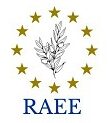Authors: Francisca Oladipo1,2,3, Sakinat Folorunso 2,4, Ezekiel Ogundepo 2,5, Obinna Osigwe 1,2, Akinyinka Akindele 2,6
1 Directorate of Research, Innovations, Consultancy and Extension, Kampala International University, Uganda
2 Virus Over Data Network (VODAN)-Africa and Asia,
3 Federal University Lokoja, Nigeria
4 Department of Mathematical Sciences, Olabisi Onabanjo University, Nigeria
5 Data Science Nigeria, Lagos, Nigeria
6 School of eLearning Projects, Kampala International University, Uganda
Status: forthcoming
Abstract
The FAIR Guidelines attempts to make digital data Findable, Accessible, Interoperable, and Reusable (FAIR). To prepare FAIR data, a new data science discipline known as data stewardship is emerging and, as the FAIR Guidelines gain more acceptance, an increase in the demand for data stewards is expected. Consequently, there is a need to develop curricula to foster professional skills in data stewardship through effective knowledge communication. There have been a number of initiatives aimed at bridging the gap in FAIR data management training through both formal and informal programmes. This article describes the experience of developing a digital initiative for FAIR data management training under the Digital Innovations and Skills Hub (DISH) project. The FAIR Data Management course offers 6 short on-demand certificate modules over 12 weeks. The modules are divided into two sets: FAIR data and data science. The core subjects cover elementary topics in data science, regulatory frameworks, FAIR data management, intermediate to advanced topics in FAIR Data Point installation, and FAIR data in the management of healthcare and semantic data. Each week, participants are required to devote 7–8 hours of self-study to the modules, based on the resources provided. Once they have satisfied all requirements, students are certified as FAIR data scientists and qualified to serve as both FAIR data stewards and analysts. It is expected that in-depth and focused curricula development with diverse participants will build a core of FAIR data scientists for Data Competence Centres and encourage the rapid adoption of the FAIR Guidelines for research and development.
